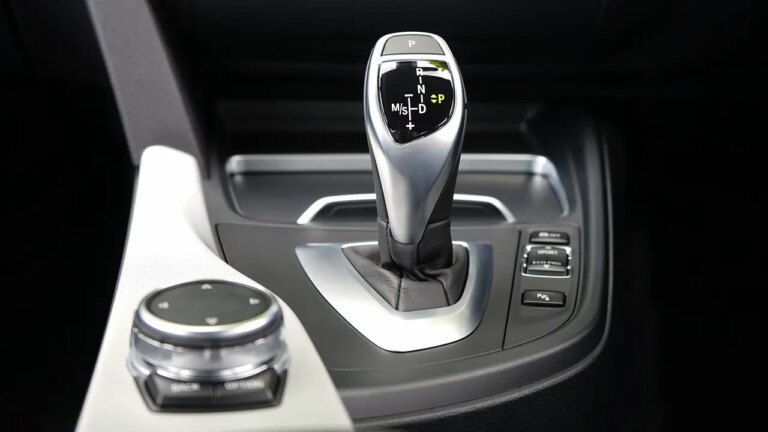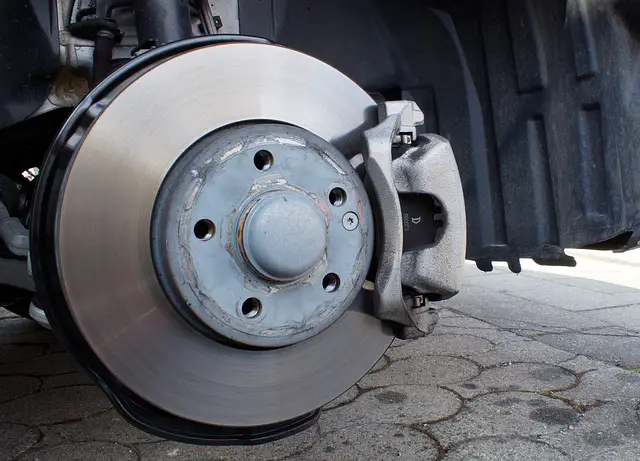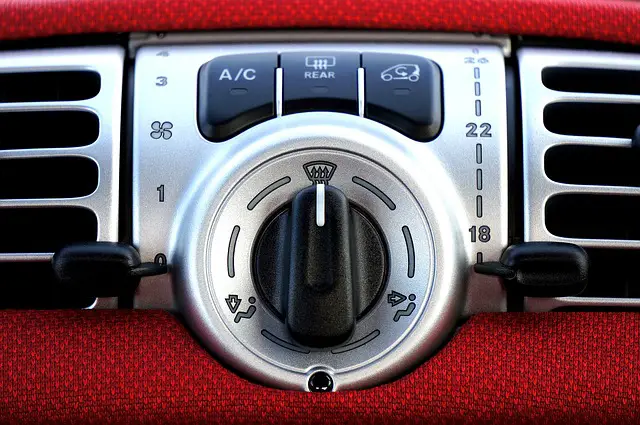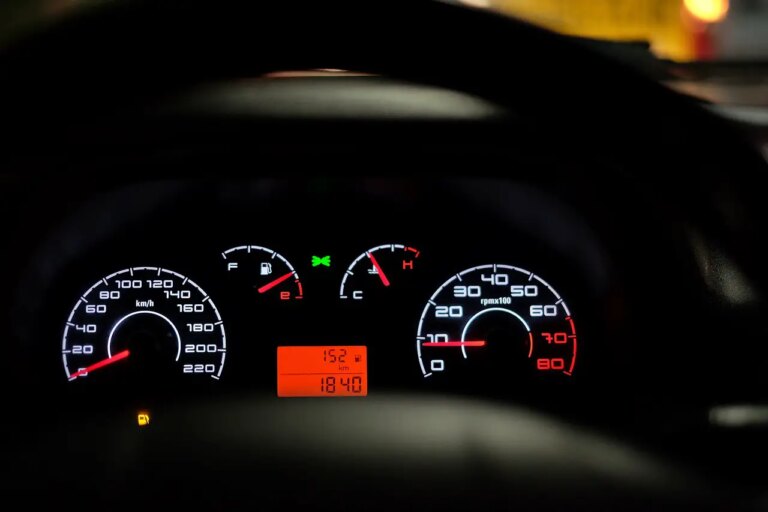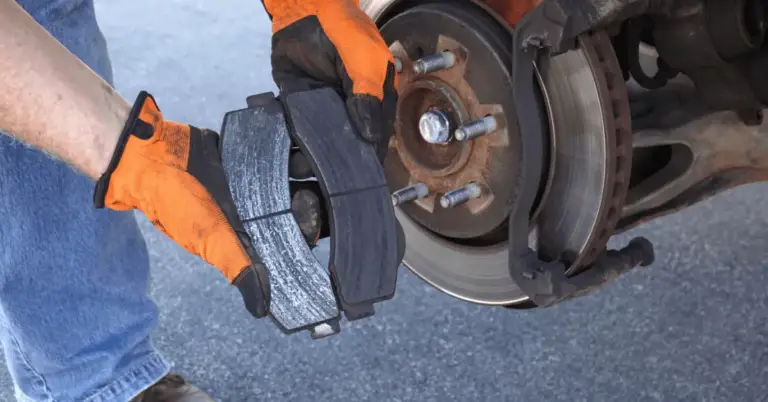Although not one of the most worrying noises you could hear from your car – that would be a knocking or a grinding noise – it shouldn’t be ignored.
Here we’ll examine the causes of a squeak when you turn and the costs of putting it right. Before we get into detail:
The most common causes are tire noise, driving on an old road surface, and low power steering fluid. Less common causes are a failing power string pump and trim rubbing against the tire.
1. Tire Noise
A squeaking or squealing noise when you turn is normally because of an issue with your tire or tires.
An underinflated tire on the side you turn to will be put under more strain as there isn’t enough air to keep it rigid. This is more likely a squealing noise than a squeaking noise.
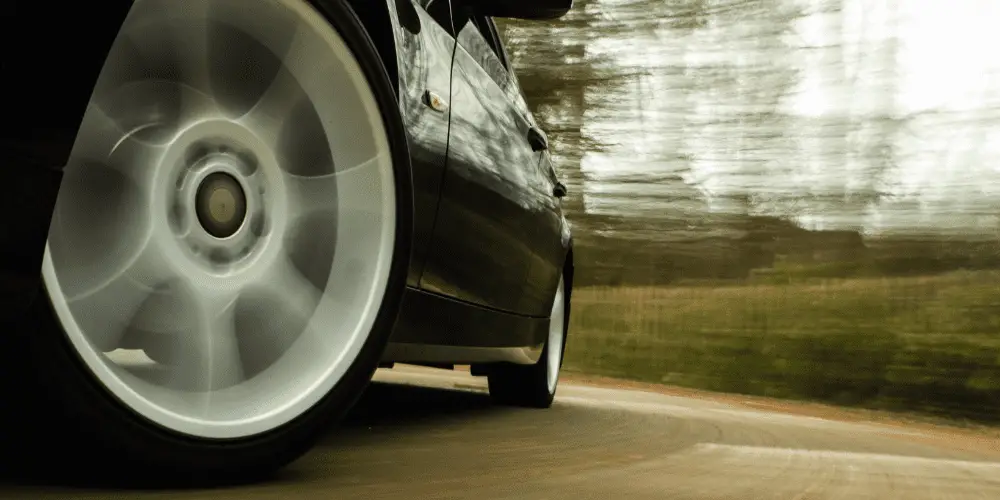
As soon as you can park your car and inspect the tire on the side you were turning to when you heard the noise.
Is it underinflated? Sometimes you can see the tire wall looks slightly worn as it has been in contact with the road as you made the turn.
Also, check for uneven tread wear. This is a sign that your tires may need to be balanced. It would help if you had all the tire surface area when you turn the steering wheel. If this isn’t happening, it can make your tire have difficulty gripping as you turn, and that is when you’ll hear the squealing noise.
Loud Tire Noise – Causes, Fixes, and Dangers
2. Exterior Trim Rubbing Against A Front Tire
An unlikely issue but not impossible. Are you sure no trim is rubbing against the tire?
Remain parked and turn the steering wheel in the same direction as when you hear the squeal.
Look on the inside of the tire, too, to see if anything is rubbing against the tire. It might be a loose metal steering component- if so, it’s good that you have found it, as that can be dangerous- rubbing into the tire.
On the outside of the car, is there any trim that is touching the wheel? Is the mudflap touching the tire as you turn?
3. Different Road Surface – Perhaps Worn and Not Grippy

Road surfaces do become worn and don’t last forever. The average tarmac road lasts 20 years before they need resurfacing. Did the squeal happen on a particularly worn piece of road? Have you noticed the squeal on newer roads?
This may be the culprit if the squeak you heard hasn’t been repeated on any other road. If so, you can breathe a bit easier.
Perhaps travel the same road again and see if the noise happens to make sure.
If it happens again, it’s the road that needs repairing, not your tires!
4. Low Power Steering Fluid
Low power steering fluid causes more of a squeal than a squeak. Is the squeak happening when you turn the left and right steering wheel? If yes, then this could be the problem.
A little bit of info about how power steering works.
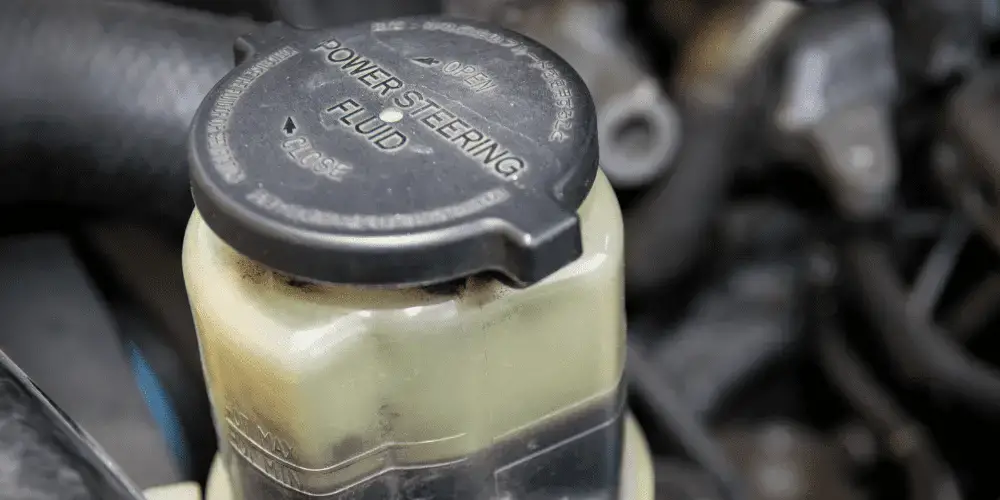
Fluid is pushed by a hydraulic pump through hoses and multiples the force available to turn the wheels and tires on your car. If there isn’t enough fluid in the system when it’s needed to assist with turning, the power steering pump will squeal.
The further you turn the steering left or right, the louder the squeal will get.
You can try this out as you are parked with the engine on.
This is very easy to check for, as a reservoir under the hood holds the power steering fluid. It should have lines on the side showing the maximum and minimum amount of fluid it should hold.
If it’s low, top it up and turn your steering wheel again. Hopefully, you have fixed the problem, and the squeak has gone.
5. A Failing Power Steering Pump
If you added power steering fluid that hasn’t fixed the squeaking, it might be time to get your power steering pump looked at. In the video below, you’ll hear the noise it makes when it fails or is about to.
It costs $400 -$600 to replace a power steering pump. This price includes the pump and the labor costs too. Of course, this figure can be higher or lower depending on the car’s make and the car shop’s hourly labor costs.
3 Steering Wheel Squeaking Noises and Causes
1. Brand New Car?
Do you hear a squeak – not a squeal – when you turn the steering wheel? Older cars have looser fitting parts. However, a brand new vehicle is tight and precise.
It’s very likely you are hearing simply a slight rubbing of the steering wheel squeaking against the rack. This noise shouldn’t be loud and may be more irritating than alarming. It should ease over the first few thousand miles, but if in doubt, get the dealer to check it for you.
2. Hotter Weather Expansion
Everything expands a little when they warm up. Do you hear a squeaking or squealing noise in the summer?
If you hear the noise from the wheels, it may be that the pads on your brakes have expanded just enough to now rub on the rotors. We are talking 10ths of an inch here. A turn of the wheel can be all that is needed to make a squeaking noise.

It’s annoying and slowly wears the pad on the offending wheel each time you turn. It stops when the weather cools, but the squeal returns as soon as it heats up again.
Solution? A car shop should check your brakes and maybe adjust them slightly if they find that has been causing the noise,
3. Steering Wheel Belt Worn or Loose
Finally, a torn or loose steering wheel belt can make various noises ranging from a knocking to a loud squeal. Sometimes it can sound like a chirping bird too.
Have you noticed your power steering sometimes not being as responsive as it used to be? If this is intermittent, it could be that the steering belt is slipping.
This is a job for a mechanic to look into.
To replace a steering wheel belt costs $75 – $250, including labor. The steering belt itself costs between $25-$80.
Often read next by other visitors: Car Making A Noise When Reversing and Turning [ALL NOISES AND CAUSES]
How Dangerous Is A Squeak When Turning?
Never take any chances, and if you cannot locate and fix the fault yourself, get your car to a mechanic to take a look. It is always best to be cautious.
Is your steering wheel shaking too? Check out our article on Why My Steering Wheel Shakes – Is It Dangerous?
Why Does My Car Squeal When I Turn It On? 4 Reasons
1. Bad Alternator
Your alternator charges your car battery as you drive along. The alternator comes to life when you turn the engine and start your car. If it’s bad, it can make a screeching sound. Have you noticed dim internal or even headlights when you drive at night? This signifies that the alternator isn’t doing its job and may need replacing.
There’s only one way to check that the alternator is working well: by checking your battery’s voltage. The voltage for an alternator that’s working fine should be 12.5 volts. You’ll need a multimeter for this.
A new alternator cost between $150 and $500 including fitting. The cost depends on whether you buy an quality brand or a cheaper alternator.
2. Serpentine Belt Slipping/Cracked/Worn
Most modern cars have two belts that do perform different functions. One generally will be used to run the alternator and the other to run the power steering and air-con if fitted.
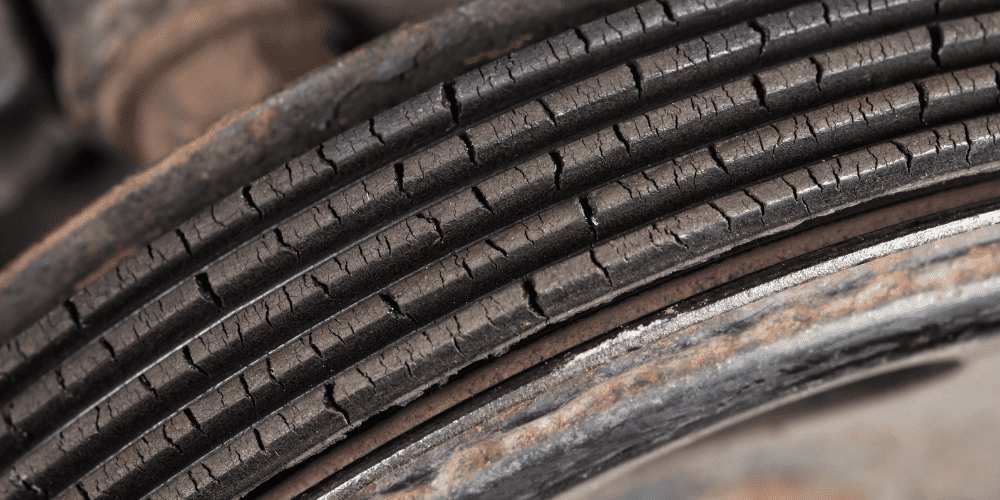
Serpentine belts normally last between 75,000 and 100,000 miles before they perish. They can become brittle and worn. When this happens, they start to slip. That could be the squealing noise you hear when you turn the key.
The continuous turning will eventually wear down the hundreds of teeth on the belt and cause slipping.
A visual inspection will soon let you know if it’s time to replace one or both. While you are checking, look for play too. There should be a little play of half an inch, but any more, and you’ll need to tighten the belt(s)
A new serpentine belt will cost between $25 and $80 for the belt and another $100- $200 for the labor.
3. Loose Belt Tensioner
You need to adjust your belt tensioner if you find a loose belt. You’ll need a ratchet and a socket to do this. Once you’ve unscrewed the bolt on the housing, you’ll be able to adjust the tension.
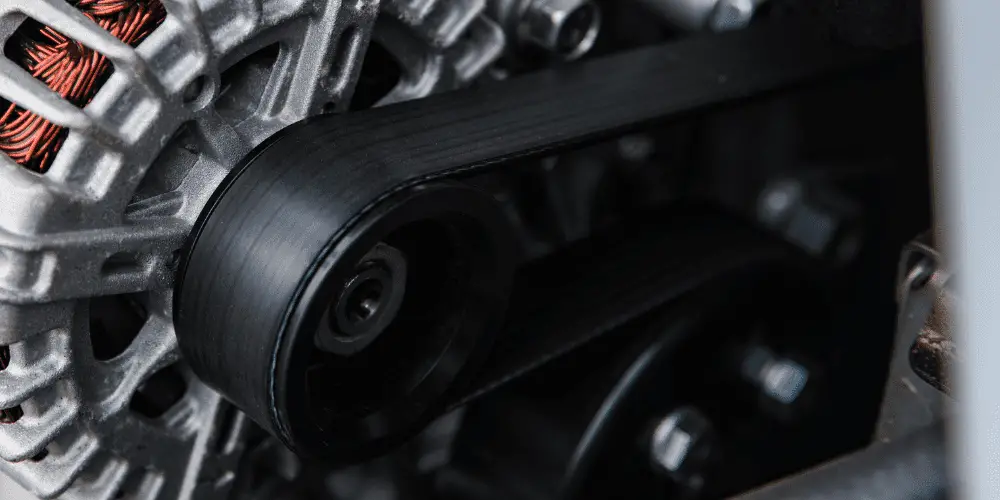
It normally sits halfway along the belt. At this location, grab the belt with a finger and thumb and twist. You should be able to twist it halfway around, but no more. If you can twist it more, it’s too loose, but less than that indicates it’s too tight.
A loose belt tensioner will cost between $125 and $400 to replace including labor. The part costs between $50 and $300 while labor costs are $75 to $200.
4. Failing Belt Pulley
Often the cause of a ripped serpentine belt is the belt pulley being bad. If they seize, they can rip and tear at the belt, causing it to loosen. Look for signs of scoring marks on the pulley.
To replace a belly pulley costs between $75 and $175. Depending on the car the part costs between $35 and $80. Labor costs are $75 to $120.
Is It Safe To Drive With A Squealing Serpentine Belt?
Your car will eventually break down if you don’t replace it. Delaying the replacement could also cause systems such as power steering and air conditioning to stop working correctly.
In conclusion
Squeaky noises when you turn are usually due to friction between the steering wheel and its housing, low power steering fluid, or underinflated tires. All are cheap to fix and should be addressed as soon as possible.


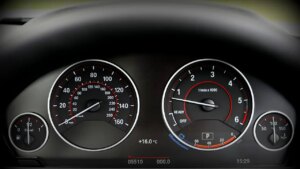
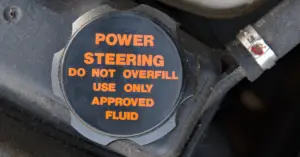


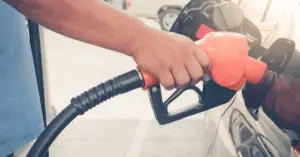
![Squeaking Noise While Driving But Brakes Not Applied [Solved] Hear-misfire](https://carzaza.com/wp-content/uploads/2023/12/Hear-misfire-300x150.png)
